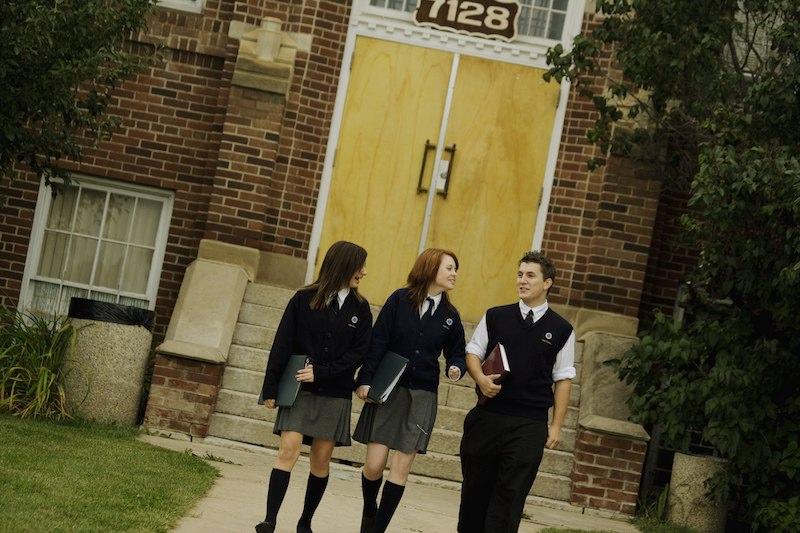
Spreading the love...? What parents should ask about pupil relationships in school
Valentine’s Day ... the name conjures up a host of romantically dreamy pictures of love and lifetime happiness.
If parents of teenage children are honest, however, the mention of love and relationships is often deeply unsettling for them. Even in an age of greater openness about love and sex, parents often find it very difficult to talk to their children about the subject, and lack of knowledge can breed unease and uncertainty. What are their children learning about love and relationships at school, particularly if they are away from home in a boarding environment? How can parents talk to their children about intimate relationships? And – the primal fear which often lies at the core of all parental discomfort - how can they protect them from harm?
First and foremost, parents need to remember that bringing up a teenager is not a task that they can - or should be expected to - do alone.
Teenagers are complex beings, growing away from their families and into a place in society; they are looking for verification of what they have been told by their parents over the years, and they will often reject parental perspectives as part of the natural braking apart from family ties that they are programmed to do.
Teenage rebellion exists for a reason: and for children to make the transition to adulthood, they need to push back against what they have experienced up to that point, exploring new avenues, just to test them out. Risk-taking is embedded neurologically into teenage development. Parents should not have to shoulder the entire burden of guiding their teenager through these years; they need partners, and this, of course, is where parents should turn to schools.
Schools are experts in dealing with teenage development, and in addressing the many and varied worries and questions that their students have about relationships and their own sexual identity.
Schools will usually have a detailed Personal, Social and Health Education (PSHE) curriculum, spanning the years that the teenager is in school, with age appropriate material. Schools will also almost certainly have systems and structures to support students in talking about relationships, in tutor groups, with a personal tutor, and even with a school counsellor and medical staff. Disciplinary rules will normally exist which lay down boundaries for teenagers about their behaviour, and to what extent it is permissible for them to develop any kind of relationship with their peers. And underpinning all of this in any school -worth its salt will be a strong ethos, perpetuated in value-laden messages communicated in assemblies and by role models in school, about how people should learn to treat themselves and one another - normally with respect, kindness and thoughtfulness. Schools can (and should) be incredibly powerful partners in helping students navigate the complex pathways of teenage and adult relationships, and in ensuring that children are kept safe and well.
If parents need reassurance about this - and most parents, quite rightly, do, then they should not be afraid of reaching out to their children’s schools and asking them what they do to teach about love, sex and relationships. In fact, rather than wait and feel awkward about it, it should arguably be one of the first subjects that parents raise when they are choosing a school. Information and reassurance from the school’s part are immensely important for most parents, and all they need do is ask. Schools are very used to dealing with such questions, and will welcome the openness.
This Valentine’s Day, reach out and ask these questions:
- How do you teach about love, sex and relationships in school? May we see a copy of your PSHE curriculum?
- How do you help teenagers keep safe in an increasingly pressurised world?
- What rules and safeguards do you have in place to protect children from harmful relationships?
- What advice do you have for parents on how to support their children’s social and personal relationships?
Dr Helen Wright is a former Head of a leading UK public school and is part of the William Clarence Education Advisory Board
